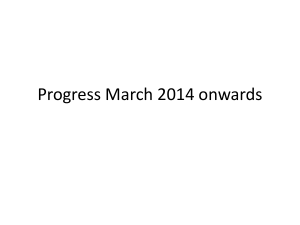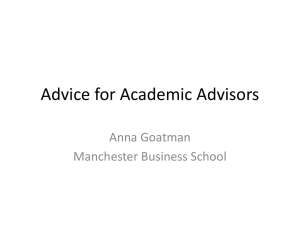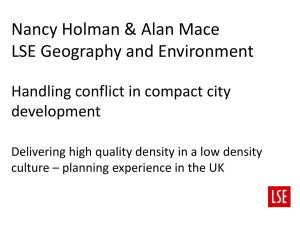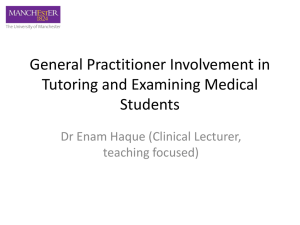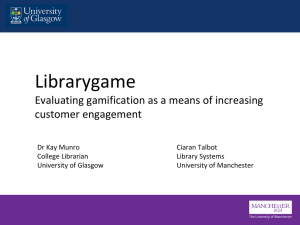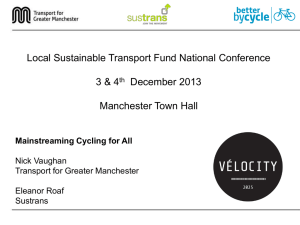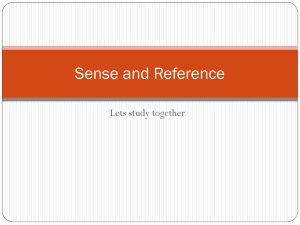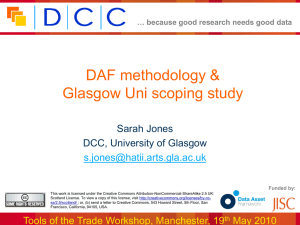Basic Financial Projections - Manchester Enterprise Centre
advertisement
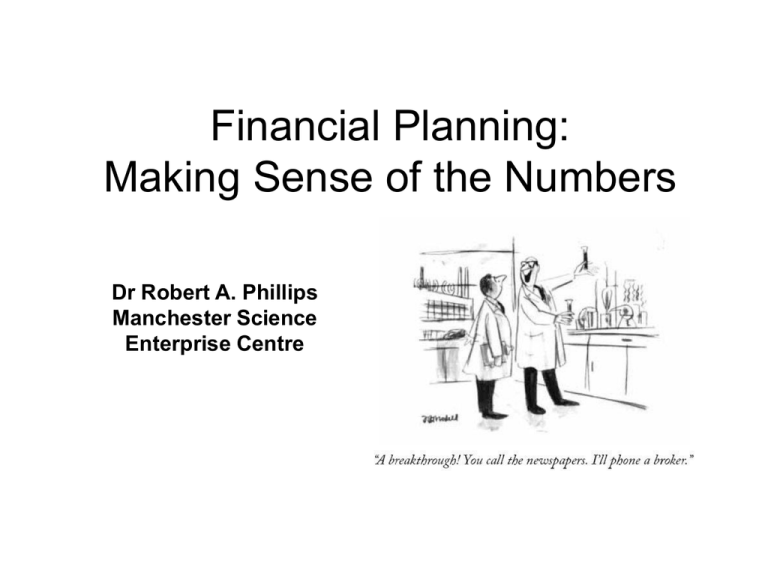
Financial Planning: Making Sense of the Numbers Dr Robert A. Phillips Manchester Science Enterprise Centre Your Costs • • • • • • • • Raw materials and equipment Wages Taxes Utility bills – gas, electric, telephone, postage etc Premises (Rental or Mortgage) Delivery costs Loan repayment Marketing and advertising costs Manchester Science Enterprise Centre Your Cash Inflows • • • • • • Investments Sales of goods Subscriptions to services Sale of Intellectual Property rights Money from royalties Sale of assets Manchester Science Enterprise Centre Break even analysis • Need to sell enough product to cover costs = Break even point • Variable costs e.g. raw materials • Fixed costs e.g. Rent, wages • Fixed costs make less of a contribution when you make more products ! Manchester Science Enterprise Centre Working Capital Cycle Cash Collections Purchases Accounts Receivable Materials Sales Finished Inventory Accounts Payable Production Manchester Science Enterprise Centre Three main statements • Balance Sheet – A ‘snap shot’ of the companies financial situation at a point in time (e.g. end of year) – Assets, Liabilities, Owner’s Equity • Profit and Loss Statement – From…..to…. – Income (Revenue) and Expenses • Cash flow Statement – From ….to…. – Cash in and Cash out Manchester Science Enterprise Centre Flow of Cash Through a Business Owner’s Investment Borrowed Funds Sale of Fixed Assets Cash Sales Collection of Accounts Receivable Cash Purchase of Fixed Assets Small Business Management, 11th edition Longenecker, Moore, and Petty © 2000 South-Western College Publishing Payment of Expenses Payment of Dividends Payment for Stock Manchester Science Enterprise Centre Cash Flow • The flow of cash in to and out of a business • Can be net positive or negative • Continuously moving picture • Especially important for a new start-up company- may update daily! • NOT simply sales minus expenditure Manchester Science Enterprise Centre Cash Flow Positive Cash Flow Profits Essential Essential Desirable Essential Short Term Long Term Cash is King Manchester Science Enterprise Centre Analysing Cash Flow 1. Net Cash Flow +ve or –ve? What are the problems? 2. Determine main causes of problem – costs or income? 3. Profitable companies with full order books can still fail ! Use the Pareto (80:20) Rule Manchester Science Enterprise Centre Profit and Loss Statement • Reports on expenses and income over a period of time. • Displays Profit. • How does that relate to cash? • Some Terms: – – – – Sales/Turnover Cost of Goods sold Gross Profit Net Profit Manchester Science Enterprise Centre Profit and Loss Details Sales - Cost of Goods sold = Gross Profit - Operating Expenses = Operating Profit or Earning before interest and Tax (EBIT) -Interest =Earnings before Tax (EBT) -Tax = Net Profit Manchester Science Enterprise Centre Balance Sheet Assets: (everything the business OWNS) Liabilities/Debt: (Everything the business OWES) Current Assets Cash Debtors Stock Current Liabilities Creditors Short-term loans Fixed Assets Equipment Premises Long-term Liabilities Loans Overdraft Equity: Value of owners’ share of the business Total Assests Owners initial Investments Retained profits/Loss Manchester Science Enterprise Centre Why do this ? • To show investors you are profitable (or to forecast profitability) • To identify areas where the company could improve and identify potential problems • To show investors you are efficient • To show customers and suppliers you will still be around next year ! • It may be required by law ! Manchester Science Enterprise Centre What do we expect • Three years of projected financial statements – Cash Flow, Profit and Loss, Balance sheet • A break even analysis – how well do you need to do before you make a profit ? • Estimation of costs and how much money you would ask from investors Manchester Science Enterprise Centre Happy Financial Planning Manchester Science Enterprise Centre

